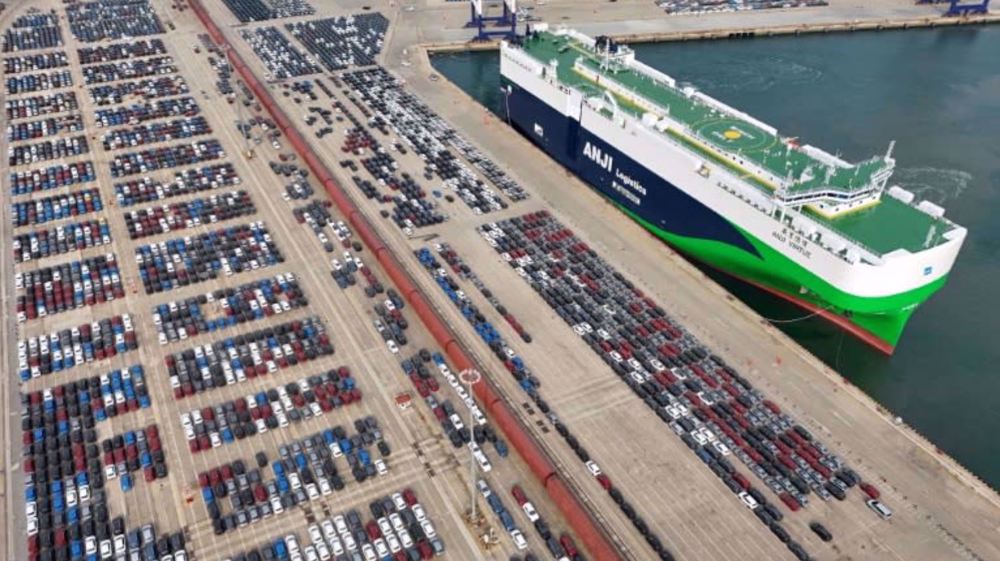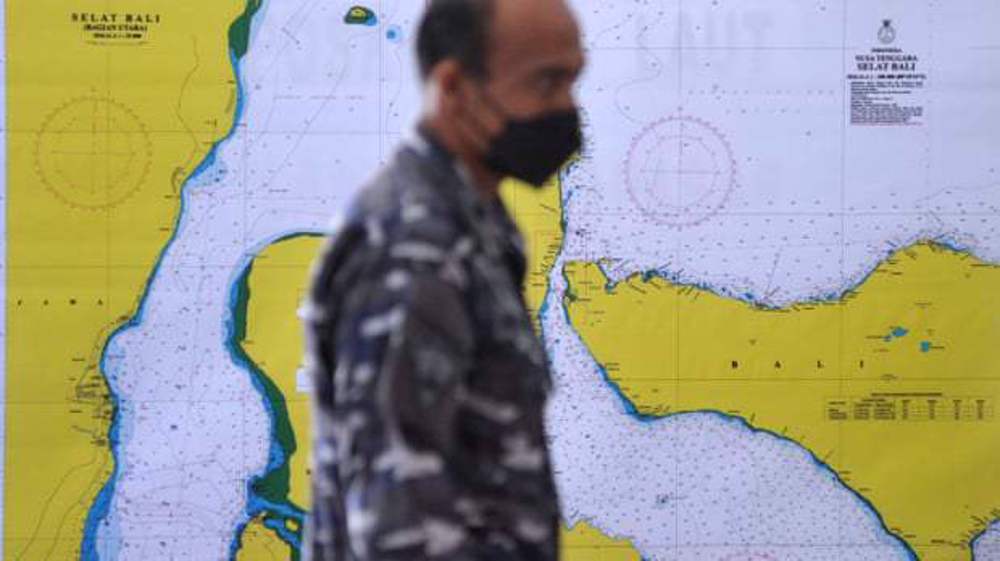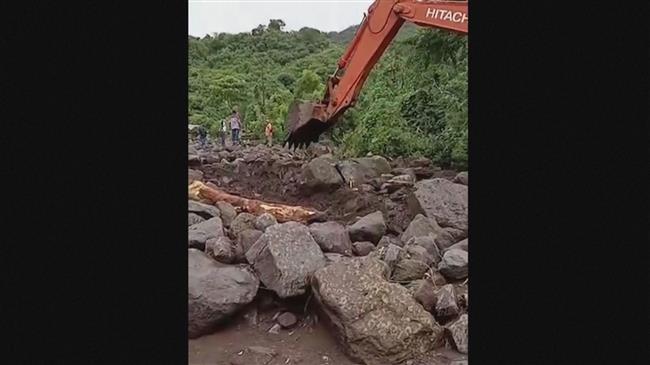Hope fades for missing Indonesian submarine as oxygen dwindles
Hopes of rescuing 53 crew members of a missing Indonesian submarine off the waters of the nation’s Bali Island are fading as its oxygen reserves are believed to have run out amid increasing search efforts to retrieve the stricken vessel.
Indonesia’s German-built KRI Nanggala 402 submarine went missing on Wednesday following its last reported dive off the resort island with growing fears that it may have sunk too deep to recover in time and navy officials saying the vessel was expected to run out of oxygen early Saturday morning.
“We will maximize the effort today, until the time limit tomorrow at 3 a.m.,” said Indonesia’s military spokesperson Major General Achmad Riad during a Friday press briefing.
Meanwhile, 24 Indonesian ships and a patrol plane were mobilized for the search, focusing on an area where an oil slick was spotted following the submarine's disappearance during a naval drill.
Indonesian President Joko Widodo canceled a visit to Banyuwangi port, calling on his nation to pray for the crew's safe return.
“Our main priority is the safety of the 53 crew members,” Widodo said during a televised address on Thursday, adding, “To the family of the crew members, I can understand your feelings and we are doing our best to save all crew members on board.”
There has been no conclusive evidence the oil slick was from the missing vessel amid assertions by Navy Chief of Staff Adm. Yudo Margono said that the oil could have spilled from a crack in the submarine’s fuel tank or the crew could have released fuel and fluids to reduce the weight of the craft so it could surface.
Margono further noted an unidentified object exhibiting high magnetism was located at a depth of 50 to 100 meters, generating optimism that it may be the submarine.
The diesel-electric powered submarine could withstand a depth of up to 500 meters but anything more could be fatal, according to navy spokesperson Julius Widjojono.
Indonesia’s navy further said it believes the submarine had sunk to a depth of 600-700 meters -- much deeper than its collapse dept -- at which water pressure would be greater than the hull could withstand. The vessel’s collapse depth was estimated at 200 meters by a South Korean company that refurbished the vessel in 2009-2012.
The official cause of the disappearance remains uncertain. The navy earlier stated that an electrical failure may have left the submarine unable to execute emergency procedures to resurface.
Australia, India, Malaysia, Singapore and the US have reportedly dispatched specialized ships and aircraft in response to Indonesian calls for assistance. The US military is sending a P-8 Poseidon aircraft to assist in the submarine search.
Submarine accidents in the past have proven to be devastating.
In 2000, Russian nuclear submarine Kursk suffered internal explosions and sank during naval drills in the Barents Sea. Most of its 118 crew perished instantly, but 23 men fled to a rear compartment before they later died, mostly from suffocation.
In November 2017, an Argentine submarine went missing with 44 crew members in the South Atlantic, almost a year before its wreckage was discovered at a depth of 800 meters.

China ‘firmly’ opposes countries making trade agreements with US at its expense

China says stands with Malaysia, region in face of unilateralism

Maldives bans entry of Israelis in ‘resolute solidarity’ with Palestinians
VIDEO | Iran seeks foreign investment to boost oil, gas sectors
Iran condemns terror attack in India's Kashmir region
After second Signalgate scandal, Democrats call for Hegseth’s resignation
Mahmoud Khalil missed son's birth after US officials denied temporary release
Iran’s annual inflation up 0.7% to 33.2% in April: SCI
Ayatollah Sistani offers condolences on passing of Pope, hails his role in promoting peace
Iran says expert-level talks with US postponed to Saturday
Iran issues jail sentences, fines for foreign crews of fuel smuggling ships









 This makes it easy to access the Press TV website
This makes it easy to access the Press TV website